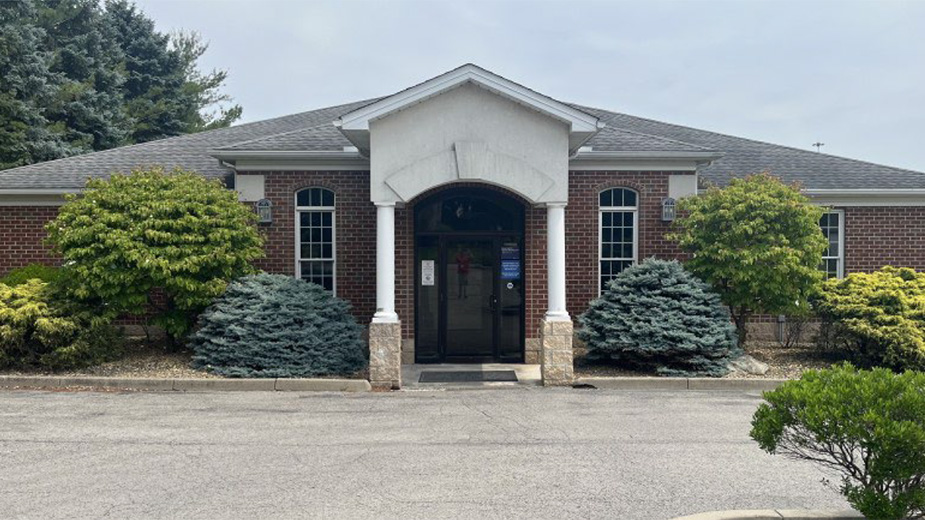Mercy Health’s Shroder Says He Merely Led His Team
YOUNGSTOWN, Ohio – As Bob Shroder reflects on his tenure at what is now Mercy Health Youngstown, the development of St. Elizabeth Boardman Hospital is among his proudest accomplishments – even if it was a controversial move at the time.
In July, Shroder announced he would retire in February. Expecting to stay only three to five years when he came to the Mahoning Valley 19 years ago, “Now that we’re retiring, we’re staying here. This is truly our home,” he says.
His wife, Kathryn, retired at the end of June.
“If I were listing some of the things that I’m most proud of during my tenure, I would put St. E’s Boardman as one of those,” he says. “Literally, we took a field and turned it into a 248-bed hospital and it has been extremely successful.”
Still, Shroder is reluctant to take credit for any of the health-care system’s accomplishments during his 13 years as president and CEO.
“It’s not me who did this. I was the leader when this happened,” he says. Shroder credits everyone from the people who clean the floors to the physicians. “We work very well as a team,” he says.
He joined that team in 1997, when he was named chief operating officer at St. Joseph Warren Hospital.
The native of Dayton began his career in hospital administration as a senior at Miami University when he interned in the business office of McCullough-Hyde Memorial Hospital in Oxford. The hospital administrator and assistant administrator, both graduates of Xavier University’s hospital administration program, liked him and got him interested in the program. He went on to earn his master’s degree in hospital and health administration.
Before returning for his master’s, he was an accountant at Cintas Corp. while his wife completed her education. Kathryn Shroder, who holds a Ph.D., is a child and adolescent psychologist.
“So when she’s mad, it’s ‘Doctor Katy’ or ‘Doctor Shroder,’ ” he says.
“Only to him,” she responds.
While serving as COO at Barberton Citizens Hospital, Shroder faced the prospect of being transferred. “The divisional person basically said that they were going to move me, and I could turn down one offer but not two,” he recalls. He and Katy subsequently decided if they were going to be moved, he would look outside that system.
That came down to two choices. He was recruited for the position in Warren and a system in Boca Raton, Fla., was interested in him as well.
“We were kind of wined and dined,” Katy Shroder recalls.
Boca Raton was a “beautiful community” but not a “family-friendly” one, she continues. “They had expensive country clubs but they didn’t have public pools, and I had swimmers. My kids didn’t do soccer.”
She also thought about how distant it would be for their parents, his in Dayton and hers – 20 years older than her husband’s – in Akron, “so I knew that travel for them would not be possible.”
On the airplane, she began to cry. He looked at her, startled, and asked what was wrong. Their kids would never again play ping-pong in the basement because there were no basements in Boca Raton.
“Then my next line, which is the one that I think really resonated with him, was, ‘This’ll kill my dad,’ ” she adds.
“I closed the information about Boca, got off the airplane and called them and said we’re going to Warren, Ohio. I wasn’t going to kill her dad,” he says.
Shroder took none-too-subtle teasing about his decision to accept the job here, based on this area’s reputation for organized crime and corruption. He opened a parting gift from his colleagues to find the cut-off head of a hobby horse and an envelope attached to a brick with a rubber band. “Youngstown email,” he laughs.
Once the Shroders moved here, “we loved it,” he adds. “Everyone was so welcoming.” Bob Shroder was at St. Joseph only a year when he was named chief operating officer of Humility of Mary Health Partners, as Mercy Health Youngstown was then known.
Katy Shroder commuted to her practice in Akron during her husband’s second year with HM. Later she started a practice here with a psychologist from Cortland she met at a conference in Columbus.
“Not only professionally was this a really good move for Bob,” she says, “but it was the best thing for our family because our children grew up with their grandparents.”
Over nearly two decades with the system, the biggest change Shroder says he witnessed is the consolidation of health care. When he entered the field, there were some 7,000 hospitals with 5,000 owners. The number of hospitals has since dropped to 5,000 “and most of them are part of a system,” he says.
“There’s roughly 180 hospitals [in Ohio] and I think you’re down to 50 that are independent facilities. Everybody else is part of a system,” he continues.
But as the number of hospitals was shrinking, Shroder’s system grew with the addition of the St. Elizabeth Boardman campus.
The concern among critics, he recalls, was that building the hospital in Boardman would “kill” St. Elizabeth Youngstown Hospital, because “the people would start going to Boardman and the hospital downtown would fade away.”
Instead, St. Elizabeth Boardman pulls from northern Columbiana County and New Castle in western Pennsylvania – areas that the system hadn’t drawn from before , he says.
Not only did the Boardman hospital exceed its business plan, but that hospital and St. Joseph “feed the tertiary center downtown” and have made the main campus stronger than if St. Elizabeth Boardman didn’t exist. When patients require heart or neurosurgery or have Level 1 Trauma issues, “These people are getting transferred to St. E’s Youngstown, which has kept that facility strong,” he says.
Shroder points to the system’s growth overall, which he credits in part (but not exclusively) to the Boardman hospital. Net revenues have grown to $750 million from $419 million, and market share has increased significantly as well.
In 1997, the hospitals generated about 80% of the system’s revenues. Today the hospitals account for about half, the other half from home care, hospice, physician practices and ambulatory settings. “So it’s not a hospital system anymore,” he observes. “It’s truly a health-care system.”
Those who worked with Shroder praise his leadership.
“There have been so many developments since Bob has been CEO,” says Betty Jo Licata, dean of the Williamson College of Business Administration at Youngstown State University and chairwoman of Mercy Health Youngstown Board of Directors.
“Of course, health care has changed dramatically and Mercy Health Youngstown has changed along with that to respond to the needs of our communities,” she says, citing the new Boardman hospital, the development of new suites at St. Elizabeth Youngstown, a strategic partnership with Akron Children’s Hospital and the creation of Mercy Health Physicians.
Shroder has been an “excellent stabilizing force,” with “very astute” financial decision-making skills and “a lot of heart,” adds Jim Schultis, president of Mercy Health Foundation Mahoning Valley. “He cares about everybody, even when there’s a tough decision to be made. He’s very circumspect.”
In coordinating with the foundation, Shroder has been “very strategic,” he says.
“Not every CEO understands that it’s not just what the health system wants but what the community wants. Sometimes those are a little different and Bob has always been wise enough to know that people and what they care about is even more important than what the hospital feels it needs.”
An example Schultis cites is the creation of the Joanie Abdu Comprehensive Breast Care Center at the St. Elizabeth Youngstown campus. The center was “not particularly a great return-on-investment project. But with breast cancer mortality rates here among the highest in the country, it was a screaming need for the community,” he remarks.
Beyond his role with Mercy Health Youngstown, Shroder also serves on several boards. Among them is the Ohio Hospital Association, for which he was chairman of its transformational care task force.
Shroder brought “valuable experience to the board” having worked at major hospitals in the state, says John Palmer, OHA spokesman: “He’s had a lot of different experiences and perspectives that he contributed at the board level.”
In addition, he served on the advisory board at the Trumbull campus of Kent State University more than a decade, including four years as chairman.
“Supporting education has always been a priority for Bob and more specifically higher education. He has always been a strong advocate for attending college,” says Dave Smith, director of advancement at the Trumbull campus.
Shroder acknowledges that health issues – “not major ones” – played a role in his decision to retire. “I’m on two blood pressure pills and some stomach pills and I do think the stress adds up. Your body handles stress a lot different in the 40s and 50s,” he says.
The couple – about to become grandparents – intend to spend more time with their children and to travel, he reports.
“Both of us have been dealing with our parents in the last couple of years,” he says. “I look at my parents and when they couldn’t travel anymore, and think while we have our health we’re going to travel and see our kids more and our grandchildren.
“My one son I saw one time in 2013. That’s not good,” he continues. “All three of our kids are in California and two of the three travel for their jobs. So we want to do better.”
Shroder also serves on the Miami University Board of Directors and Mercy has discussed how he might work “part-time” for the system. “Hopefully I can get rid of at least two of those blood pressure pills,” he says.
Katy Shroder, who already is involved in her own activities since her retirement, says she looks forward to doing more things with her husband. Even so, she is a “p.m. person” while her husband is an “a.m. person,” she relates.
Her husband gets the last word. Sort of.
“She says if I wake her at 6:30 [a.m.] more than twice and say, ‘What are we going to do today?’ the answer will be, ‘We are looking for a duplex.’ ”
Pictured: Kathryn and Bob Shroder came to the Mahoning Valley in 1997. When he retires in February, they will still live here.
Copyright 2024 The Business Journal, Youngstown, Ohio.



